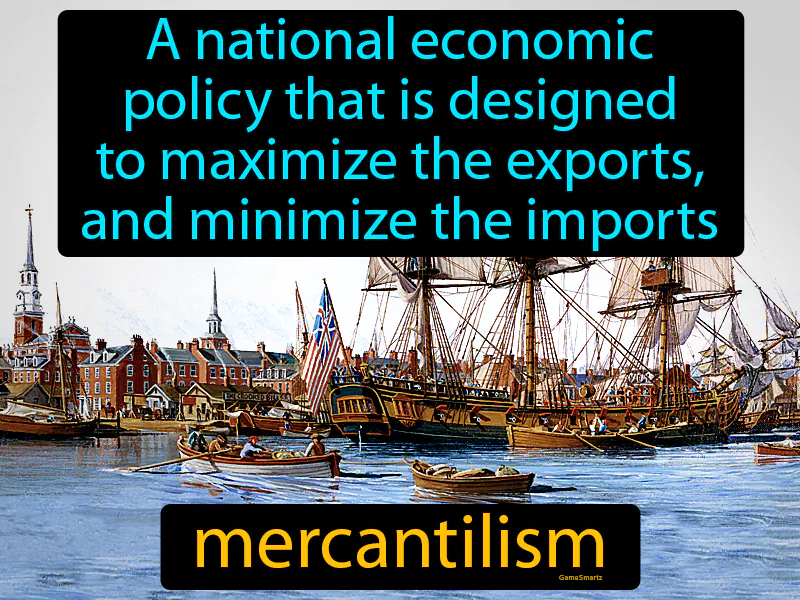Mercantilism
Mercantilism: Easy to understand
During the Colonial Era from 1400-1760, mercantilism was a policy that aimed to increase a nation's wealth by controlling trade and establishing colonies. European countries, like England and France, believed having more exports than imports would make them richer and more powerful. This policy led to the establishment of colonies, which provided resources and markets for European goods. Today, the concept of protecting local industries is still seen in debates over tariffs and trade agreements. For example, if a country imposes high taxes on imported goods, it might encourage people to buy locally made products, impacting prices and choices in everyday shopping.

Practice Version

Mercantilism: A national economic policy that is designed to maximize the exports, and minimize the imports. Mercantilism. Mercantilism is a historical economic system where nations sought to increase wealth by hoarding gold and silver and boosting exports over imports.